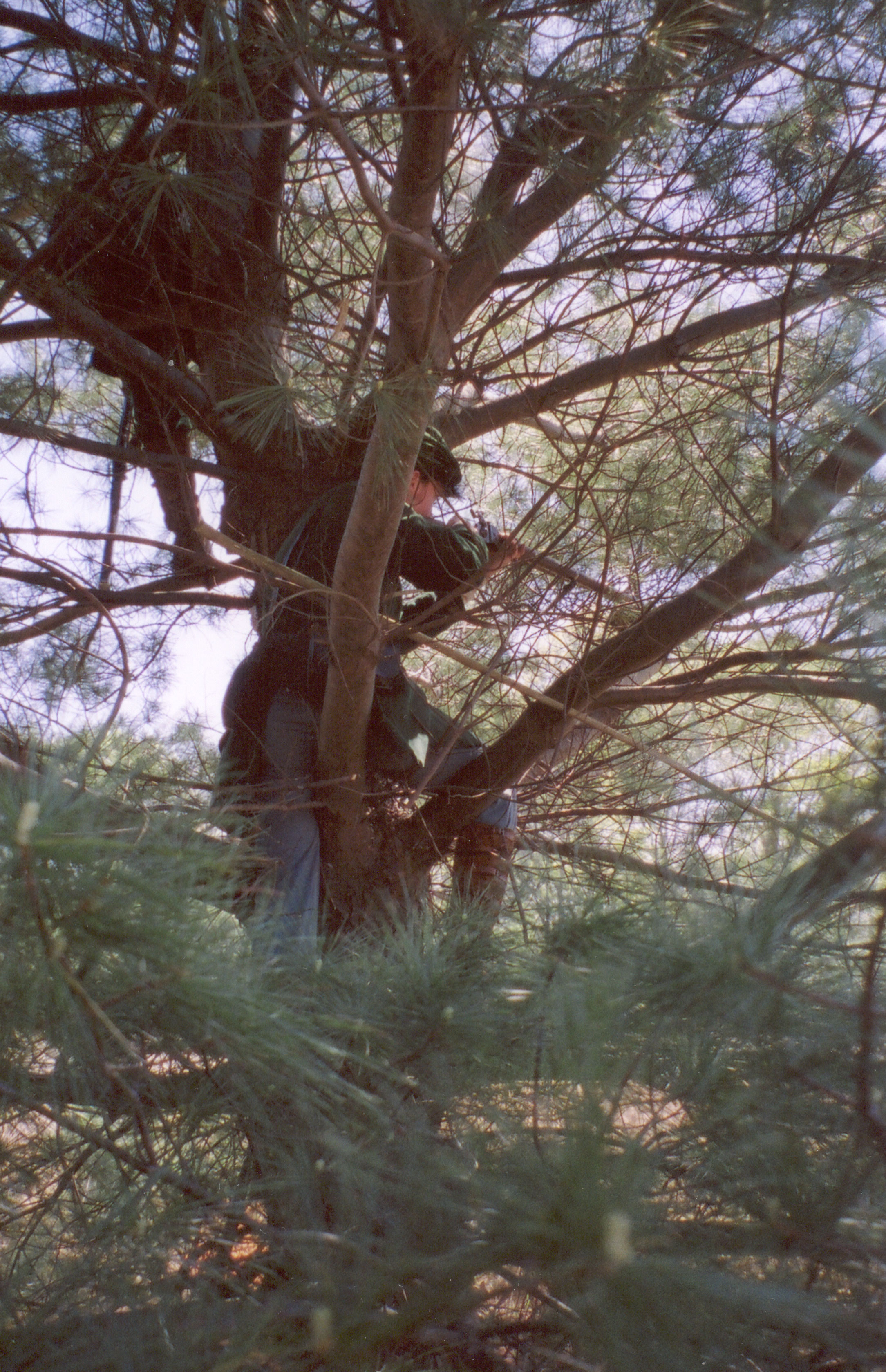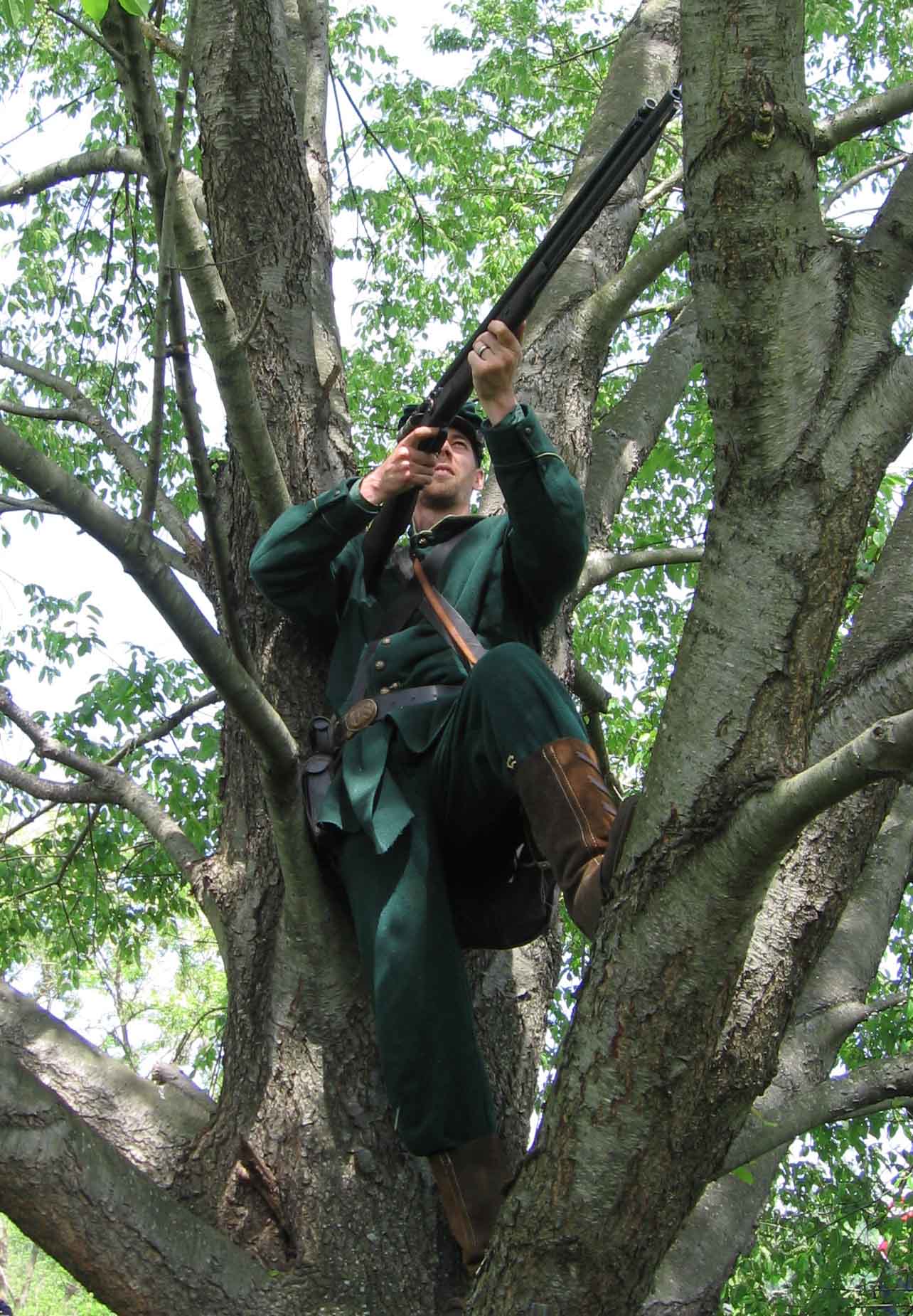Sharpshooting (sniper)
This was primarily long range shooting at high
value targets or to harass enemy troops.


Artillery Suppression.
WARWICK RIVER. -
Berdan's United States
Sharpshooters in the Army of the Potomac:
by Capt. C.A. Stevens
Engage
Enemy sharpshooters -
Berdan's United States
Sharpshooters in the Army of the Potomac:
by Capt. C.A. Stevens
Gettysburg:
The 3d corps had
been kept in reserve as a support to both 1st and 2d corps, Birney's division
behind the 1st. Gen. Newton commanding 1st corps, says: "I made
arrangements with Gen. Birney to draw upon him for such support as might be
needed, and express my obligations for the cheerful and handsome manner
in which he responded to every call made on him." Although the corps rested on
their arms subject to call, the Sharpshooters were out to the front
in different positions. Companies C, I, and K, under Capt. Baker were protecting
batteries of the 5th corps, on our left, and Col. Trepp
says: "On this occasion, Corp. Wellington Fitch, of Company C, distinguished
himself by making a bold reconnaissance alone, which resulted
in capturing a squad of rebel sharpshooters that greatly annoyed our artillery."
Lieut. E. A. Wilson, who was in command of Company C, says Baker's orders were to clear the front of Little Round Top of the enemy's sharpshooters, which was done, driving them off and capturing a lieutenant and 30 men.
THE "DEVIL'S
DEN." This forbidden spot was situated in the hillside fronting Little Round Top
about 300 yards distant, with a marshy interval or swamp
intervening; and consisted of a hole in the rocks, or cavern, with a small
opening, with blasted, barren surroundings. A fitting resort for witches, freebooters —
and rebel sharpshooters, who occupied it that day, with whom the Michigan men
scattered behind the boulders at the foot of Little Round Top were kept busy
exchanging shots for a long time, as also with other Johnnies lodged behind
boulders in the vicinity of Devils Den.
Finally, having expended a great deal of ammunition, it was determined to stop their firing at all hazards, our artillery above being considerably annoyed, suffering loss from this continual shooting. For this purpose a detail of 20 men was made by Richard W. Tyler, at that time a sergeant of Company K, a gallant soldier who had distinguished himself on previous occasions. "With a rush these brave fellows ran across the marsh, and having routed the enemy's pickets in front of the hill, closed in upon them capturing the entire party. There were 20 of them caught in the cave, a number being wounded, and they assured our men that their fire from the Little Round Top had made them prisoners all day. It was made too hot for them to attempt an escape.
They were a sorry looking crowd, being very hungry and about famished for want of water. They were much alarmed at being caught, because as sharpshooters they expected no quarter, and begged lustily for their lives, nor would they scarce believe Sergt. Tyler's assurance that they would be treated as fairly as other prisoners ,until they learned that their captors were Berdan Sharpshooters, when a sudden change came over their dejected spirit to one of undisguised happiness.
That old idea
that sharpshooters would be strung up, was discarded by our men after the
Peninsula campaign.